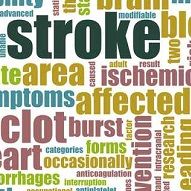Article
CHA2DS2-VASc Scores Useful Even When Patients Do Not Have Atrial Fibrillation
Author(s):
The scoring system known as CHA2DS2-VASc is commonly used as a clinical guideline for assessing ischemic stroke risk in patients with atrial fibrillation (AF). A research team from Santiago, Chile found it can also predict vascular dysfunction and cardiovascular events in high-risk patients who do not have AF.

The scoring system known as CHA2DS2-VASc is commonly used as a clinical guideline for assessing ischemic stroke risk in patients with atrial fibrillation (AF). A research team from Santiago, Chile found it can also predict vascular dysfunction and cardiovascular events in high-risk patients who do not have AF.
Reporting at the American Heart Association 2015 Scientific Sessions in Orlando, FL, Hugo Verdejo and colleagues at the Pontificia Universidad Catolica de Chile looked at 112 consecutive patients in sinus rhythm and without history of AF who were having elective CABG procedures.
They recorded clinical and laboratory characteristics at baseline and 72 hours after surgery.
All subjects were monitored for 72 hours to exclude postoperative AF. All had a standardized MRI preoperatively and within five days after surgery to detect evidence of perioperative stroke.
Patients' mean age was 65 and more than 80% of the cohort were men.
At follow up, 26.8% of the patients' MRIs showed new defects compatible with ischemic stroke, but only two showed overt neurological impairment.
The CHA2DS2-VASc score was higher in patients who developed perioperative stroke.
The score was the only independent predictor of perioperative stroke in the patients. "Patients with a score of 3 or more exhibit an increased risk for perioperative stroke even after adjusting for age, smoking and significant comorbidities," the team noted.
The study is presented in an abstract.





